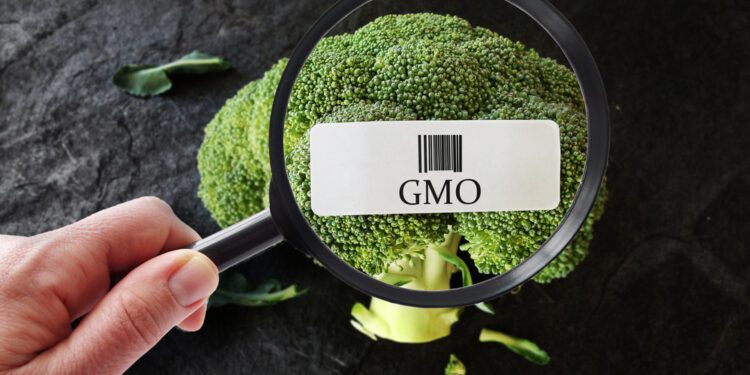After a yearslong fight with the US food industry, activists managed six years ago to push through a federal law requiring manufacturers to disclose the use of genetically modified organisms (GMOs) as ingredients. The labeling requirement took effect on January 1, 2022, but it probably won’t alter food sales, according to research by Cornell’s Aaron Adalja and Jura Liaukonyte, University of Massachusetts’s Emily Wang, and University of Wisconsin PhD student Xinrong Zhu. Their study suggests that consumers adjusted their buying patterns long before the national mandate.
Debate on the subject of GMOs started in the 1970s and took off in the 1990s, when bioengineering technology became more widespread. Activists allege that genetically modified crops could be unsafe for humans and the environment. In Europe, those and other concerns led to significant regulation on GMOs, although the global scientific community hasn’t found evidence that GMOs are unsafe to eat. The World Health Organization’s website states that genetically modified foods “should be assessed on a case-by-case basis and that it is not possible to make general statements on the safety of all GM foods.” It notes that there’s no evidence that GMOs on the international market affect human health.
The United States as a whole has been more tolerant of GMOs. Over the past two decades, several states have tried to put forward labeling initiatives. Just one state—Vermont—actually passed and implemented a mandatory GMO labeling law. The food industry has been resistant to labeling, concerned about creating a stigma against GMO foods. In the meantime, voluntary, third-party-verified-non-GMO labels emerged to meet consumer demand for this sort of signaling information. In particular, the Non-GMO Project Verified Program, launched in 2010, has become the US standard for third-party verification.
The voluntary labels seem to have worked as a signaling device, as sales of non-GMO labeled foods surpassed $26 billion in 2019. In that case, the researchers wondered what sort of effects mandatory GMO labeling would have on sales. To find out, they looked at state-level public debates and label-law proposals that took place between 2012 and 2017, as well as Vermont’s mandatory GMO-labeling law, which took effect in 2016.
To see the effects on sales, they used NielsenIQ Retail Scanner Data from Chicago Booth’s Kilts Center for Marketing. They focused on the GMO-heavy ready-to-eat cereal category, specifically the Big Three companies of General Mills, Kellogg’s, and Post, and the new non-GMO products those companies and others introduced to the market from 2012 to 2017.
Using Google search data to assess consumer awareness around GMO issues across different locations, the researchers find that searches spiked when local legislatures considered GMO labeling requirements. And the more residents in an area searched for GMO topics, the more non-GMO foods they bought: 36 percent of all new non-GMO product purchases could be attributed to the increased consumer awareness sparked by legislative activity, according to the study.
A labeling law inspired change before it was even implemented
Once a labeling mandate was adopted, though, as in Vermont, there was no statistically significant change in demand for non-GMO foods, suggesting that many consumers already used the voluntary non-GMO labels. The new, required GMO labels didn’t have any direct effect on demand.
“In hindsight, it makes sense that we didn’t find an effect, given that this other [non-GMO] label had existed for so long and served as a beacon for consumers to sort themselves into the type of product they wanted,” Adalja says. He notes that the national mandate that kicked in this year probably won’t create much in the way of further change. “In the short run, we don’t expect to see any impact. To the extent that the passage of this law continues to raise consumer awareness over time, though, there could be a longer-term evolution of consumer preferences that shifts one way or the other.”
If anything, Liaukonyte adds, she expects the non-GMO label to take on an even greater role to a broader set of shoppers. “It’s more recognizable, and it’s clear what it actually means,” she says. “The GMO label itself is still confusing to the consumer. Those who care about this attribute, GMO versus non-GMO, they’ve already made their choices.”
Courtesy Chicago Booth Review. By Allyson Reedy. Click here for article












